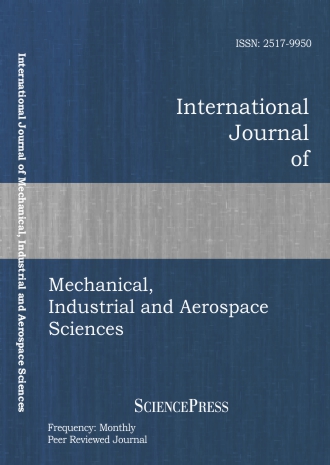
Scholarly
Volume:6, Issue: 2, 2012 Page No: 530 - 533
International Journal of Mechanical, Industrial and Aerospace Sciences
ISSN: 2517-9950
1385 Downloads
A TRIZ-based Approach to Generation of Service-supporting Product Concepts
Recently, business environment and customer needs have become rapidly changing, hence it is very difficult to fulfill sophisticated customer needs by product or service innovation only. In practice, to cope with this problem, various manufacturing companies have developed services to combine with their products. Along with this, many academic studies on PSS (Product Service System) which is the integrated system of products and services have been conducted from the viewpoint of manufacturers. On the other hand, service providers are also attempting to develop service-supporting products to increase their service competitiveness and provide differentiated value. However, there is a lack of research based on the service-centric point of view. Accordingly, this paper proposes a concept generation method for service-supporting product development from the service-centric point of view. This method is designed to be executed in five consecutive steps: situation analysis, problem definition, problem resolution, solution evaluation, and concept generation. In the proposed approach, some tools of TRIZ (Theory of Solving Inventive Problem) such as ISQ (Innovative Situation Questionnaire) and 40 inventive principles are employed in order to define problems of the current services and solve them by generating service-supporting product concepts. This research contributes to the development of service-supporting products and service-centric PSSs.
Authors:
References:
[1] V. Martinez, M. Bastl, J. Kingston, and S. Evans, "Challenges in